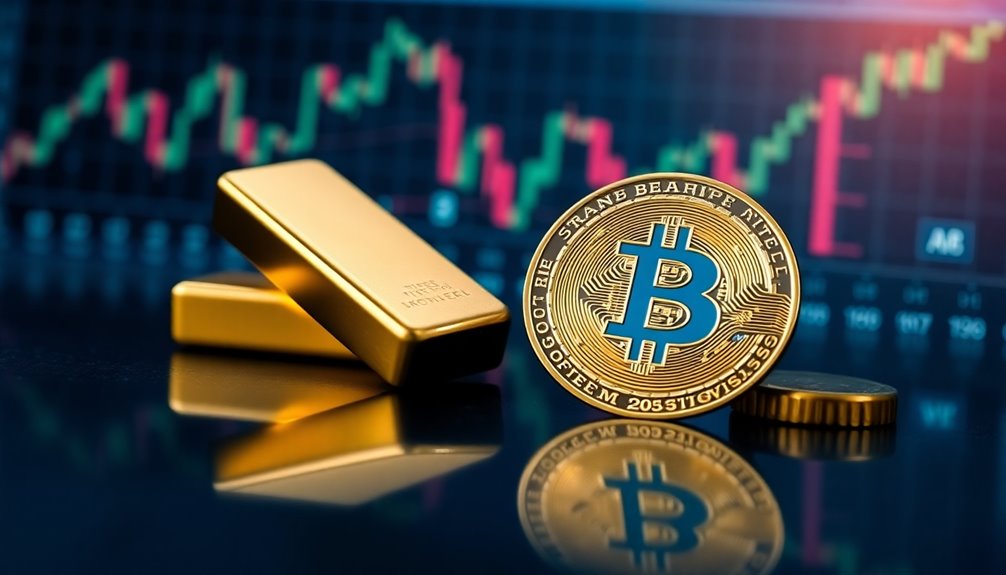In today's unpredictable financial climate shaped by Trump's trade war, you're likely feeling the pressure to make smart investment choices. With rising tariffs and economic uncertainty, gold's stability shines as a safe haven. However, Bitcoin's allure comes with its wild price swings, tempting those seeking higher returns. As you navigate this dilemma, the decision between these two assets isn't straightforward, and the stakes couldn't be higher. What's your next move?

As the trade war escalates, you might be wondering about the real impact of tariffs imposed by the Trump administration. The situation has resulted in over $233 billion in customs duties collected by March 2024, but the economic consequences have been far from beneficial. Prices for everyday goods have risen, and output and employment have taken a hit, leading to a net negative impact on the U.S. economy. With over a million full-time equivalent jobs projected to be lost, the trade war's shadow looms large over American households, which now face increased costs estimated between $200 and $625 annually.
In this climate of uncertainty, you may notice investors flocking to traditional safe-haven assets. Gold, known for its historical stability, has seen renewed interest as a reliable investment. Diversification of retirement savings through gold investment is often highlighted as a key benefit that draws investors during turbulent times. On the other hand, Bitcoin, often perceived as a risk asset, has shown significant price volatility in response to trade developments. Its behavior often diverges from that of gold, making it a less predictable choice during turbulent times. The correlation between Bitcoin and gold has actually decreased, reflecting a shift in investor behavior as economic conditions evolve. Bitcoin's correlation with gold has diminished significantly as investors favor traditional safe havens.
Market volatility has become the norm, affecting both traditional and digital assets. For instance, Ethereum recently experienced a staggering 25% drop, underscoring how sensitive crypto markets are to trade policies. As you assess your investment strategy, you might find yourself torn between the allure of Bitcoin's long-term potential and the safety of gold. While Bitcoin's volatility can be appealing to some, it's important to recognize that many see it as less reliable during economic uncertainty.
With ongoing trade disruptions and retaliatory tariffs complicating global trade relations, the demand for safe-haven assets has surged. This uncertainty drives many investors to diversify their portfolios, balancing both gold and Bitcoin to manage risk effectively. The prospect of long-term capital stock effects and a potential GDP reduction of up to 1.3% only adds to the urgency of making sound investment decisions.
As you navigate this challenging landscape, keep in mind that the choices you make now could significantly impact your financial future. The trade war may force you to weigh the risks and rewards of your investments more carefully than ever. Whether you lean towards gold's stability or Bitcoin's long-term promise, staying informed will be crucial in these uncertain times.









